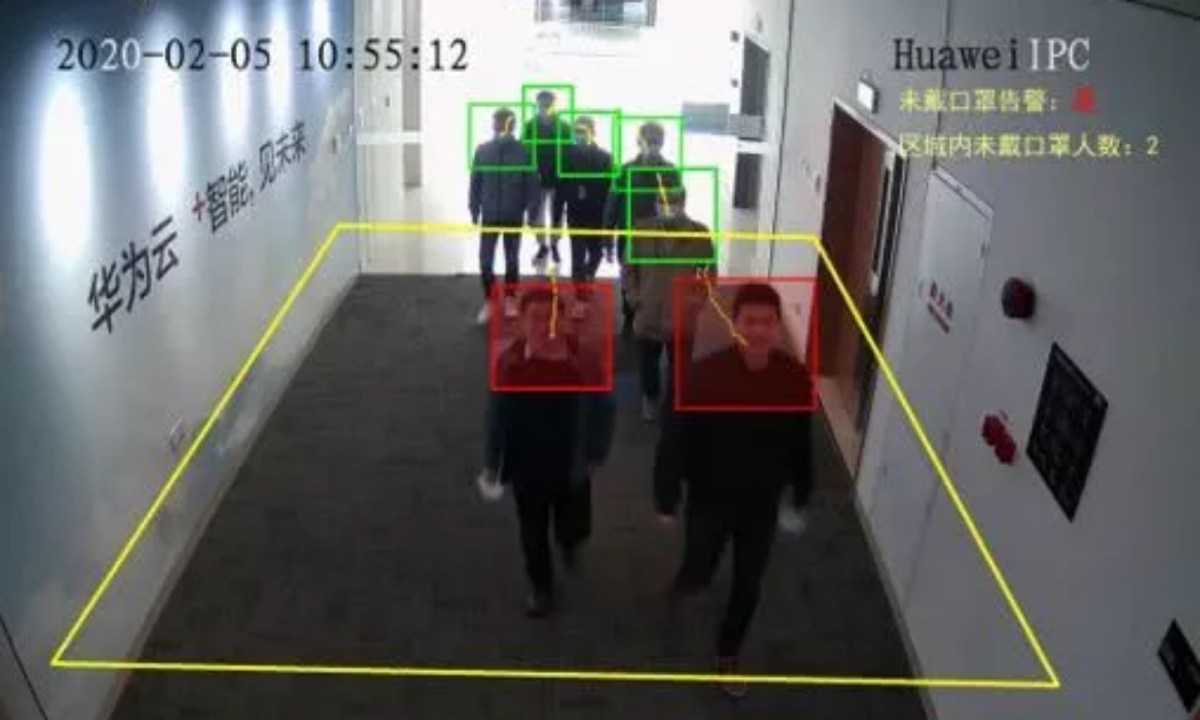Shenzhen, known as the “heart of science and technology” in the Guangdong-Hong Kong-Macau Greater Bay Area, has gradually resumed production with the help of digital and telecommunication tools.
While continuing with measures aimed at controlling the Covid-19 epidemic, Shenzhen is using a series of government relief measures to get back to work.
The city’s central business district of Futian has been the preferred place for enterprises to set up their headquarters.
Science and technology enterprises are the core industries in Shenzhen and there has been a push to get them back into production.
Huawei Technologies, a Shenzhen-based company, recently launched an online daily attendance system and a website plus an online quiz about epidemic prevention for its staff. It has also set up special areas for disease-control staff within its production sites.
Huawei has been using new information and communications technology to closely monitor its staff.
If it detects a problem, the company can response to it quickly. In addition, edge computing and AI video analysis algorithms are being used to identify people who are not wearing masks and issue warnings to them.
The Huawei industrial park also closely monitors the health of staff in key positions and has replaced manual inspections with video patrols. These measures have greatly improved management and help avoid close contact among staff.
Video cloud and AI technology have been used to identify any crowd aggregation in the factory and prevent cross-infections.
In order to prevent employees from making contact with others and avoid the virus, many technology companies in Shenzhen have started remote operations, with people working from home.
On February 10, Shenzhen Micro-core Biotechnology Ltd resumed office operations. Prior to this, the company provided online safety training courses to all its security officers. The fingerprint attendance system was replace by a face recognition one to prevent cross-infections.
To avoid creating crowds, the company arranged for its employees to either work from home or arrive and leave the office at different times. All lunch boxes were arranged and delivered by the company.
“To ensure the safety of our employees, Malong has adopted a remote-operation strategy internally in the very beginning, worked out a detailed plan to resume production and prepared relevant materials,” said Liu Xiaofang, assistant to the chief executive of Malong.
Since February 3, the company has used remote operations, which include document access, departmental communication, project management and teleconferencing, Liu said.
According to local media reports, a lot of companies can have more than 80% of their work completed remotely or put on a cloud. Digitalized operations can help minimize losses of office suspension and turn a crisis into opportunity.
To improve ventilation and prevent cross-infections, the headquarters of Zhengwei Group, a wire and power cord maker, in Futian, Shenzhen, turned off its central air-conditioning system and opened its doors and windows, according to a report in the Shenzhen Special Economic Zone Daily.
The company distributed two masks to each employee every day and started to make reports on the health of its employees and their families on a daily basis.
According to reports, more than 70% of the company’s employees have already resumed work in the headquarters.
























